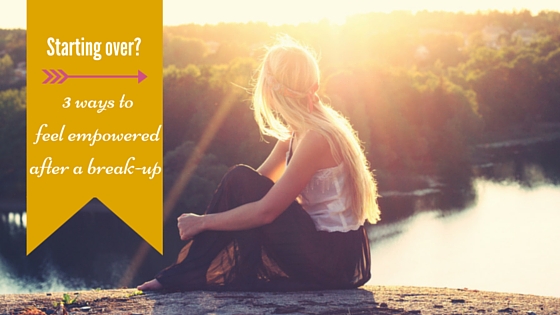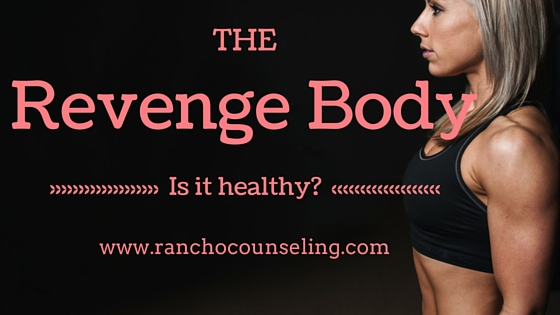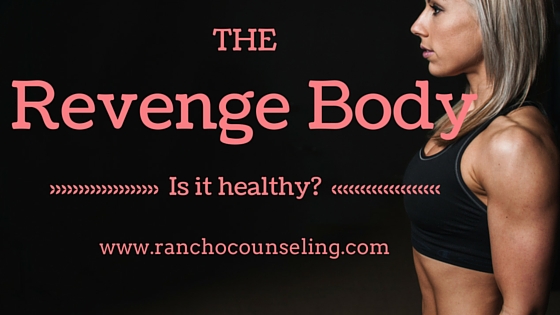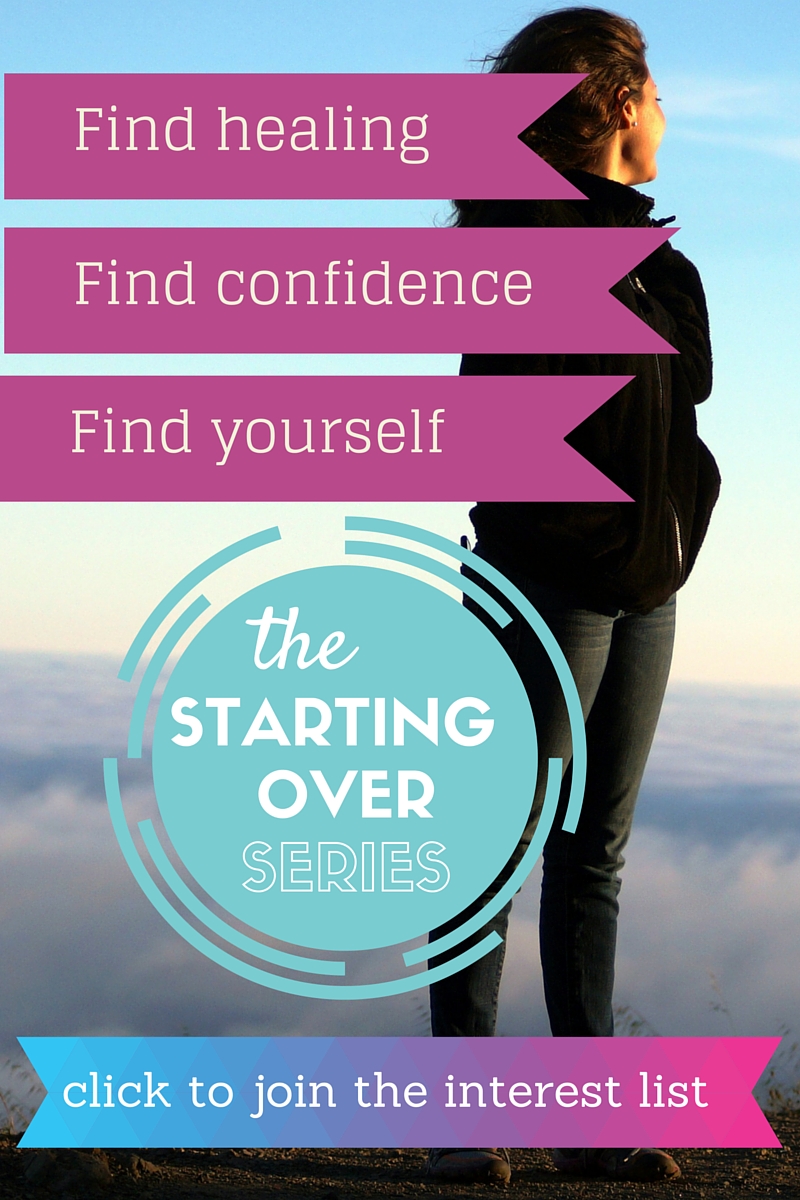
Blog
3 Ways to Feel Empowered after a Break-Up
I totally get how much starting over sucks. But just like anything, there’s always a silver lining. Today’s post is all about how to pick yourself up and heal after heartbreak, and I’m diving in deep with lots of action items and steps to really help you find true and lasting healing with my top 3 steps, so here we go:
The emotion can be overwhelming when you experience the loss of a relationship, it can be difficult to sleep, difficult to eat, and the grief over the loss can send you into a downward spiral that might be difficult to get up from. There's fear and anxiety abut where to go and what to do next. Losing a love that you always thought you'd have is devastating. But just like anything, there’s always a silver lining.
It can be difficult to just put one foot in front of the other, and a challenge to get through the day without shedding a tear or two, but it gets better and there are some actions that you can take, to push you towards the healing phase. It might feel like you're just going through the motions at first, but once you find your stride, these actions can take you to a whole new you, and you can come out on the other end as the best version of yourself.
I'm pretty optimistic when it comes to the healing process, and I get that in the beginning it might seem like a climb up Mt. Everest, but the view from the top is breathtaking!
It takes one step at time to get there, and here are 3 actions that you can take today to help you off the emotional roller coaster, and into a new phase of confidence and self-love:
1. Recognize that the way you are feeling now isn’t the way it will always feel.
It’s easy to let the overwhelming feelings of grief and sadness take over and govern all aspects of your life, but there will come a time where the edges of your sadness are not so sharp. In fact, one day you’ll have moved on and be in a place that makes you so happy that you’ll feel like it was all a bad dream.
You know that feeling, right? You wake up and know that you were feeling scared or upset, but you can’t remember why or much of the detail and as the day passes, you forget about it completely.
I’m not saying you’ll completely forget about your ex, or the trouble in your relationship but there will come a time that it won’t be consuming, and you won’t have to hold back tears when you recall things about your relationship or come into contact with things that remind you of them.
The best way to start the process is with gratitude. It’s easy to get stuck and caught up in focusing on what you don’t have (your relationship), so much so that you miss all of the amazing things that are going on around you. The more that you add in positivity and focus on it, the less time you have to allow the negativity to consume you.
Something that you can start daily is a gratitude practice.
Every morning when you wake up, let the first thought be, “thank you.” If you’re religious you can thank God that you woke up and that you have another day on this earth. If you want to skip the religious part, just say thank you to your body for working, for breathing, and to the universe for allowing you another day.
Then make a mental or written list of 5-10 things that you are grateful for before your feet even hit the floor. In that moment where you aren’t yet ready to open your eyes and take a stretch, and are typically thinking about how badly you need more sleep, think of the things you have to be grateful for – a place to live, running water, a warm bed, your health, your family. These things can be big or small, but they deserve to be acknowledged, and those acknowledgements will change your attitude and help combat that sadness you feel.
Practice this exercise for at least one full week and notice how it makes you feel. If you’re feeling like overachieving, when you get into bed at night, think of 5-10 different things that happened throughout your day that you are grateful for and let those good vibes you’ve created lull you to sleep rather than the sadness you feel over sleeping alone.
2. Awaken your inner badass and unlock the power of positive affirmations.
Just as with gratitude, positive affirmations have the power to change the way you feel inside. In fact, there’s a great study that says the smile on your face can change the way you feel inside, meaning it actually changes the chemistry in your brain and in your body. So even if you aren’t feeling happy, put a smile on your face and see if it doesn’t help improve your mood, even slightly.
That’s kind of how this whole positive affirmation thing works. It’s normal for a breakup to make you feel off your game and unlike yourself. Having someone you trusted and loved tell you that they no longer wish to be in a relationship with you is one of the ultimate bubble bursts in terms of self-esteem.
But you do have plenty to offer. Those amazing qualities do exist and practicing positive affirmations helps to keep them in the forefront of your mind. Spending more time on positivity leaves less room for negativity.
In order for this to work you have to take action and practice, practice, practice. Start by making a list of 10 positive things about yourself and then put that into a sort of mantra that’s easy to repeat. Your affirmations can be things that you’re totally not feeling at this moment, but deep down you know are true.
Something like, “I am bright, I am beautiful, and I deserve to be loved.” Or, “I have much to offer the world, and to others. I am kind.” Or maybe just, “I am enough.”
Then do whatever it takes to repeat a couple of your favorites throughout your day and especially in times that you feel down. Use post-it notes and put those suckers all over your mirror, your car, or your cubicle. If you want to be a little more discreet, set reminders on your phone for them to pop up at random times throughout the day to remind you just how awesome you really are.
3. Reconnect with your strengths.
Many times in relationships there are parts of us that become lost, or overshadowed, but those parts are important, and they make us who we are. They contributed to who we were before we entered into the relationship, and yet those parts often get neglected.
In order to reconnect with those strengths, reflection and introspection have to be involved. Were you once an athlete, or involved in some sport that you no longer do? Is there a creative side to you that you don’t feed because you’ve become too busy? Are you great with money? Are you a great parent? Are you a great friend?
I want you to look at those strengths and get back to them so you can start to feel like yourself again, but also more importantly so that you can begin to realize that although this relationship is lost – while it’s extremely important, it isn’t all that makes up your life.
Sometimes women can place far too much emphasis on their romantic relationship and allow it to govern all other aspects of their life rather than having a full life and allowing a relationship to fit in the picture as well.
Find your strengths; accentuate them, or build new strengths.
Do you know what your strengths are? If not, take some time to reflect on them. Ask your close friends and family what they see as your strengths, or even what they saw that used to be your strengths, because maybe they’ve noticed you’ve lost them along the way as well. It can be difficult to put yourself out there in such a way, but a close confidant will likely be truthful if you approach them in the right way.
I’m a huge proponent of journaling; I recommend it to almost all of my clients who are struggling through life’s challenges. While you’re trying to heal you can start journaling and thinking about the parts of yourself that you’ve neglected that once brought you a sense of happiness and strength.
If you still aren’t sure what your strengths are, need some help with those affirmations, and gratitude practice, don’t worry I’ve got you covered! Click on the link below to download my Attitude, Gratitude and Strength Finding Cheat Sheet and start the healing process today.
The Revenge Body: Is it healthy?
The “Revenge Body” is apparently a thing now that Khloe Kardashian has coined it and turned it into a new reality show. It’s quickly becoming a hot topic among those healing after heartbreak, but is it really that healthy?
The “Revenge Body” is apparently a thing now that Khloe Kardashian has coined it and turned it into a new reality show. It’s quickly becoming a hot topic among those healing after heartbreak, but is it really that healthy?
Exercise in and of itself is great, we all know that we should be getting at least 30 minutes every day, and that we should accompany it with a healthy diet and good sleep. If you’re suffering after a break up though, those things can be difficult to come by. You might find yourself lacking in the sleep department, eating as a means of comfort, and lacking the motivation to get you out of bed and into the gym.
Once you do pick yourself up and begin to heal a bit, hitting the gym and getting your sweat on can make you feel amazing. It creates those wonderful endorphins that send the “happy” signals to our brains, and the strength gained over time can be wonderfully empowering, but just like anything, it has to be done in moderation.
If you’re hitting the treadmill to blow off steam, create a sense of empowerment, and channel anger over the loss of a relationship, it can be easy to become addicted. The concept of the revenge body goes a little deeper than this though – with technology it isn’t just about improving confidence and weight loss, it’s more about flaunting bods in front of exes in hopes of feeling revenge – and that’s where it becomes a problem.
Over-obsession about body image and the premise that this revenge body is being created with the intention of brandishing it for an ex to ooogle over can set you up for some major disappointment.
If exercise has become an outlet for you, so be it. I’ve seen many clients run their first half-marathons, lose a healthy amount of weight, and reinvent themselves after a break-up, but when it borders on obsession and becomes over-consuming it’s no longer healthy.
Pushing yourself hard in the weight room and fantasizing over your ex’s reaction to your scantily clad Instagram post might fuel your workout, but that mentality quickly fizzles. Unless you are working hard for your own intrinsic motivation, it’s not likely to last, and you won’t necessarily keep it up over the long term.
Uncovering the need for revenge can be even more beneficial in the long run. I always tell my clients, “You can leave your relationship, but you have to take yourself with you.” Many times people think that they can move on with someone else and not have the same issues that caused their last relationship to crumble, but that’s not typically the case.
You can only control yourself, and learning more about who you are, what you want out of life and your relationships, and your contribution to the end of your relationship will give you far more rewards as you move forward than any revenge bod picture ever will.
Hit the gym, take a yoga class, go on a hike, whatever you do, do it because it feels good to you, and nothing else.
If you’re struggling to heal after heartbreak, and would like to learn more about healing in the most positive way, be sure to get on my interest list for The Starting over Series, an e-course I’m developing to help women everywhere heal from heartbreak and become the best version of themselves, so click to sign up below.
What to do when your partner wants out
Your partner has just said the D word, and maybe it’s something that’s been thrown out here and there when tensions get really high, but this time it’s different. Maybe you’ve received official documents of separation or the ante has been upped, and suitcases are being packed. Whatever the case, it doesn’t feel good, and you don’t know what to do, but you know you want it all to stop!
Your partner has just said the D word, and maybe it’s something that’s been thrown out here and there when tensions get really high, but this time it’s different. Maybe you’ve received official documents of separation or the ante has been upped, and suitcases are being packed. Whatever the case, it doesn’t feel good, and you don’t know what to do, but you know you want it all to stop!
Those feelings of anger, confusion, hurt, and sadness are normal responses, but what do you do when you don’t want to give up? When you want to keep at it, and try something that you haven’t?
The short answer is something that I recently added to my practice, because this is something that I’ve seen often, and before now haven’t necessarily had the right tools in my toolbox for.
Many times couples come in for couple’s therapy and one partner has already got one foot out the door. They’re trying therapy as a last resort, and just to appease their partner and themselves, so in the end they can say they tried everything. Typically couples come in 7 years too late – or at least that’s the statistic I’ve heard thrown around here and there.
In a perfect world everyone would do some premarital counseling, and continue to utilize counseling throughout their relationships when they encounter rough patches. They’d treat their marriages like their cars, and get regular tune-ups. But really, that’s just not the case for many, and I think that statistic exists because the approach to therapy has been wrong.
When one person is out the door it’s difficult to do couple’s therapy. They’ve made up their minds, and their interest level in therapy might no longer be about making improvements. At this point the leaning out partner might just be trying to get their partner to see all the ways they’ve wronged them, and hope that therapy will get them to change. Without each individual seeing their contributions and coming from a place where they are both invested in working together to get back on track, there can be little change.
So the trick is to get them both to that point before jumping into couple’s therapy, and I’ve started doing that with my clients in the form of Discernment Counseling.
Discernment counseling is short term, usually 1-5 sessions, and it’s for what we call, “mixed-agenda couples.” Where one spouse is saying, “I’m done, I want a divorce,” and the other is saying, “No, I want to keep trying.”
In those 1-5 sessions I work with couples to help them understand their contributions, how they arrived at this point where divorce is on the table, and what it will take to choose to enter into couple’s therapy. The goal of Discernment Counseling is to help couples decide between three paths:
Path #1 is to stay the course, and keep doing things the way they’ve been doing them.
Path #2 is the decision to separate or divorce.
Path #3 is a commitment to do 6-months of intense work on the relationship through couple’s therapy. This path isn’t about choosing to stay together forever, but it’s a commitment to take divorce off the table and see what can be accomplished in the next 6 months and then re-evaluate the relationship.
In the meantime, if you are the leaning-in partner, and wanting to make things work, my best advice is to neither pursue nor distance yourself from your partner. Talk to them about the possibility of Discernment Counseling, and take time to think about your contributions to getting to this place in your relationship. It's easy to point the finger at the person who's saying they want out, but it takes two to tango and you need to understand what you need to change in order to move forward.
Discernment Counseling is something that can be so beneficial because too often couples jump right into couple’s therapy and the timing is off, and both partners are on totally different wave-lengths when it comes to understanding what they really want out of their relationship and need to first decide if they both want to commit to be in the relationship.
While couples come into the office together, they mostly talk with me alone and we meet all together to report out take-aways from the individual time. Couples are coming out of these Discernment sessions with the clarity they need to make the best decisions about the future of their relationship, and I’m happy to be trained in this technique through the Doherty Institute. You can find out more information about the Doherty Institute here.
If you and your partner are at a crossroads in your relationship, and want to find more clarity about what to do next, feel free to give me a call at (909) 226-6124 and I’d be happy to discuss whether Discernment Counseling is right for you and your partner.
Additionally, I want to let you know that if you are in the process of healing after the loss of a relationship, I’m going to be launching an e-course to help those healing from heartbreak called, The Starting over Series. If you’re interested in more info about this course, click the link below and get on the interest list!
When you just don't feel like it
You know those days when you just don't feel like being inspired by all the wonderful quotes in your newsfeed? The ones that make you just want to hide under the covers with some chocolate and a good Netflix marathon?
Ya, I know those days too, and I recently became a contributor to the Divorcedmom.com website, and that's exactly what I shared about in my first post. I'd love for you to check it out here. Being uninspired while you work through your anger can actually be beneficial, I hope you enjoy the post, and don't forget to leave a comment!










